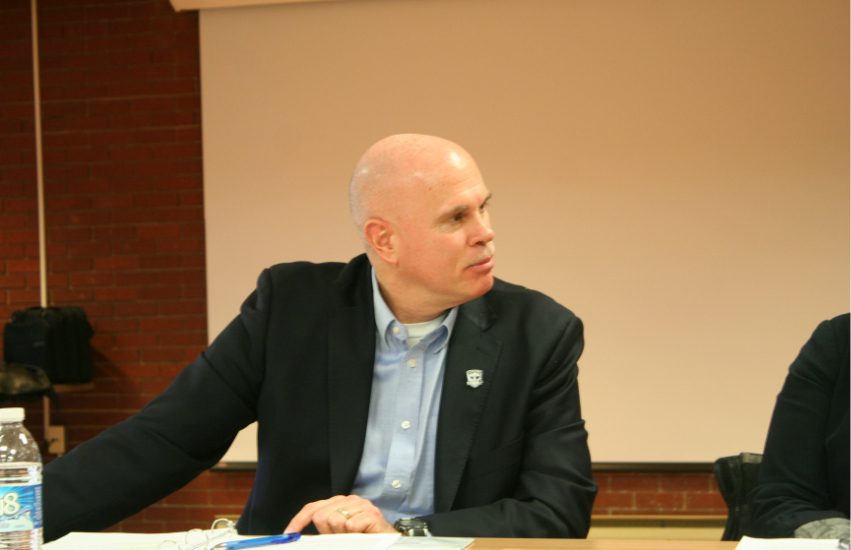KJIPUKTUK (Halifax) – A report by criminologists Anthony Doob and Rosemary Gartner looks at the effectiveness of carding in Toronto and concludes that when all is said and done the practice is more harmful than helpful.
The usefulness of carding “is substantially outweighed by convincing evidence of the harm of such practices both to the person subject to them and to the long term and overall relationship of the police to the community,” the report states.

The highly respected scientists wrote the report on behalf of the Toronto Police Services Board.
The report’s conclusion is based on 60+ peer-reviewed studies that look at carding and related practices in cities and regions across North America and Europe. This approach suggests that the report’s conclusions are not just applicable to Toronto, but are equally valid in Halifax.
Although In Halifax police and media like to refer to the practice as street checks rather than carding, the activities of officers questioning people who are not suspected of having committed a crime, and filing the information so gathered, are exactly alike.
And that’s not where the similarities end. Both in Toronto and in Halifax Black people are three times more likely to carded compared to white people, a rate proportionally much higher than warranted by demographics.
There is no doubt that information collected through street checks is potentially helpful in solving crimes, the criminologists write. But the more complex questions that must be raised is what might be the ‘costs’ and ‘benefits’ to society of these kinds of data gathering programs?
Turns out those costs are high, while benefits remain anecdotal at best.
One such high-profile cost is racial profiling, which seems to be inextricably linked with carding.
One Canadian study referenced in the report, using a nationally representative survey of 4,164 youths, found that youths who were Black, Arab/Middle Eastern or Aboriginal were more likely to be questioned by the police than other youths (white or East/South Asian).
This bias is not explained by higher crime rates among Black youths. There was a sizable difference in level of police contact for youths who had not been involved in violent crime in the previous year: 28.5% of Black/Aboriginal/Arab/Middle Eastern youths had contact with the police compared to only 10.1% of the other youths.
Racial profiling in turn decreases the community’s trust in police and leads people to question its legitimacy. It showed that those who see the police as acting with legitimacy are less likely to support ordinary people’s use of violence for personal protection, to resolve disputes, or to achieve political goals.
Yet another study shows how perceptions of fairness and lawfulness negatively affect citizens’ willingness to voluntarily provide the police with crime-related data.
The report looks at many factors other than the effects of racial profiling on a community’s trust levels. Summarizing all the evidence it provides to justify its conclusion is way beyond the scope of this article (or the skills of this journalist, for that matter).
Halifax police chief Jean-Michel Blais has said that police have only anecdotal evidence that street checks have been effective, but that he is reluctant to stop the practice until “he has the facts behind it.”
This lack of facts justifying the practice is yet another thing the Halifax Police Department has in common with Toronto and other Ontario jurisdictions.
The Ontario ombudsman notes the absence of supporting evidence in favour of carding.
“(The Minister) should not simply accept the subjective and anecdotal protestations of its policing partners. Any future regulation will only survive constitutional scrutiny if the government can clearly establish that there is sufficient evidentiary support for the use of this policing tool as an important public safety measure. That evidentiary base does not currently exist,” wrote the Ontario Ombudsman in September 2015.
Why police Canada-wide have not provided such evidence is a valid question at this stage.
The Doob-Gartner report is a fact-filled resource that provides evidence that carding is ineffective and does harm.
Nova Scotians concerned about carding by Halifax police and RCMP should take a close look at it. As should the police and the politicians who provide oversight.
The only conclusion you can draw from it is that carding in Halifax should stop immediately.
If you can, please support the Nova Scotia Advocate so that it can continue to cover issues such as poverty, racism, exclusion, workers’ rights and the environment in Nova Scotia. A pay wall is not an option, since it would exclude many readers who don’t have any disposable income at all. We rely entirely on one-time donations and a group of 25 or so dedicated monthly sustainers.




The conclusions reached by the Doob-Gardner report should provide Police Departments and Politicians that the practice of Carding/Racial Profiling is not only non-effective and harmful to the targeted groups, but more disturbingly, it’s institutionally racist!
Moreover, common sense should have been the quantifiable and reasonable conclusion by Police and Politicians in an inclusive society where “all” of its citizens are valued and respected. Conversely, the fact that Chief Blais affirmed that he would continue this unlawful, detrimental and racist practice demonstrates that he and others in such positions of power and authority (abuse these positions) are indeed unfit and for these very significant offices that by and large play a huge role in specifically how the minorities in this country are undervalued while concurrently being over policed and harassed for no other reason than their ethnicity.
Let me therefore indicate that Blais et al must halt this racist practice immediately or pressure from society must be redoubled until such time as they either see the light or they are removed from office.
Essentially, everyone in a “Democratic” society must be made to feel and observe that they are valued and respected – for these are the very building blocks that lend support and credibility to an inclusive and positive community and indeed country.